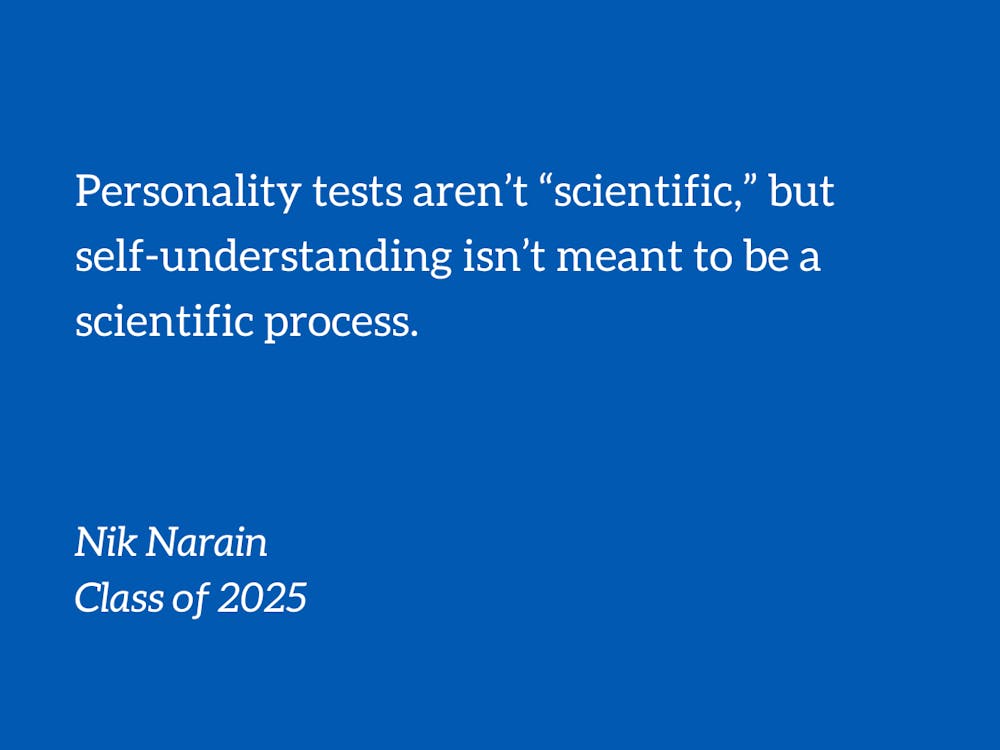In case you were wondering, I’m an open, over-neurotic INFJ MBTI subtype who’s an Enneagram Achiever and visual learner. My Harry Potter house is Gryffindor, I’m a Left-Twix, and I resonate most strongly with Chandler from Friends and the brown M&M. As my father once famously said: "Once you choose brown, all the other colors let you down."
If any of the above sentences resonated with you, you may also share my love for personality tests. I love translating the depths of my psyche onto a five-point Likert scale or multiple choice response, startling myself with the “real” questions, like “Do I let others take charge of situations?” or “Am I an unusual person?” Is that something only a “usual” person would think? I love grounding myself in the idea that I am an original person who decides my destiny, and then having someone on the internet tell me exactly who I am, be it a professional psychologist or some content editor at Buzzfeed. I fully admit to the hypocrisy of saying I don’t believe people are meant to fit in neat boxes and then get excited when I neatly fit some psychologist’s purely made-up category, like the rarest Myers-Briggs subtype (not to brag).
I know more personality tests are essentially pseudoscience disguised as “meaningful introspection.” Only a select few assessments have been shown to have any validity and reliability outside academia, resulting from both design and user error. I am asked to give quantifiable responses to intentionally vague questions, answers that I’ll most likely change the next time I take the same assessment. I’ll probably lie about how kind and organized I am because I obviously can’t let an objective computer algorithm judge my sins. Most importantly, I’m taking a test to better understand myself by answering questions that test how well I know my own behavior, which seems fundamentally counterintuitive.
I think these questions will reveal some sort of inner foundation of myself, but what they actually reveal is a snapshot taken through some stranger’s lens, likely riddled with biases. These biases are highly amplified when personality testing is used as a hiring tool in businesses, an approach that has rightfully faced intense scrutiny for blatant racism, sexism, and ableism. Basing one’s promotion or firing based on 20 random questions and a jumble of letters is bound to have its ethical qualms. Nevertheless, according to the Harvard Business Review, personality testing is a $500 million industry, with growth rates estimated at 10 to 15% annually, and appeals to consulting firms, hedge funds, start-ups and university programs alike.
Yet, I do see the value of having some external body call out your potential blind spots or adopt a whole new language to describe who you are. As a young person fumbling through adulthood like a potato falling down a staircase, I find myself making decisions and actions I can’t explain, aspects of myself that are somehow outside of my control. One of the most underrated facets of adolescence is this sudden boom in behavioral literacy and the realization that honing behavioral literacy is critical to navigating an increasingly complex world. Perhaps, then, personality tests serve as more of an act of self-preservation and self-care than an objective inquiry into something inherently subjective.
Personality tests aren’t “scientific,” but self-understanding isn’t meant to be a scientific process. People are not meant to fit into categories, but maybe learning where some old guy thinks you fit in can be a productive exercise in learning about your own psychology (or more importantly, the inner psychology of that guy). And psychometrics shouldn’t be relied on for organizational decision-making, but maybe it can encourage you to be more self-compassionate. At the end of the day, personality testing requires the same mindset any psychologist would encourage when thinking about yourself: don’t take it too seriously.
Nik Narain is a Trinity junior. His column typically runs on alternating Thursdays.
Get The Chronicle straight to your inbox
Sign up for our weekly newsletter. Cancel at any time.

